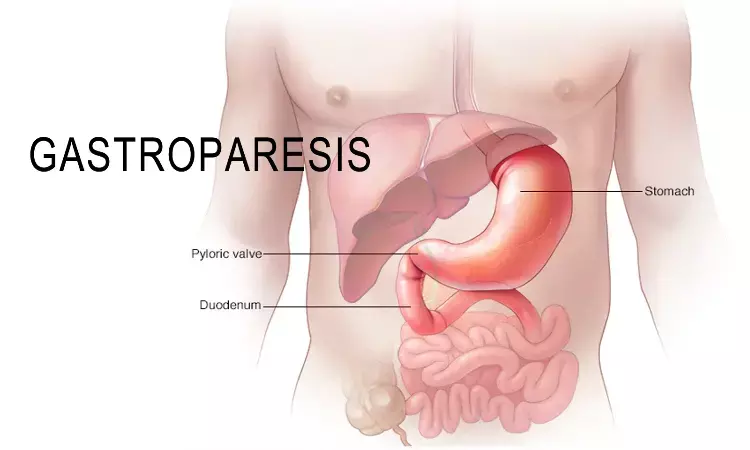- Home
- Medical news & Guidelines
- Anesthesiology
- Cardiology and CTVS
- Critical Care
- Dentistry
- Dermatology
- Diabetes and Endocrinology
- ENT
- Gastroenterology
- Medicine
- Nephrology
- Neurology
- Obstretics-Gynaecology
- Oncology
- Ophthalmology
- Orthopaedics
- Pediatrics-Neonatology
- Psychiatry
- Pulmonology
- Radiology
- Surgery
- Urology
- Laboratory Medicine
- Diet
- Nursing
- Paramedical
- Physiotherapy
- Health news
- Fact Check
- Bone Health Fact Check
- Brain Health Fact Check
- Cancer Related Fact Check
- Child Care Fact Check
- Dental and oral health fact check
- Diabetes and metabolic health fact check
- Diet and Nutrition Fact Check
- Eye and ENT Care Fact Check
- Fitness fact check
- Gut health fact check
- Heart health fact check
- Kidney health fact check
- Medical education fact check
- Men's health fact check
- Respiratory fact check
- Skin and hair care fact check
- Vaccine and Immunization fact check
- Women's health fact check
- AYUSH
- State News
- Andaman and Nicobar Islands
- Andhra Pradesh
- Arunachal Pradesh
- Assam
- Bihar
- Chandigarh
- Chattisgarh
- Dadra and Nagar Haveli
- Daman and Diu
- Delhi
- Goa
- Gujarat
- Haryana
- Himachal Pradesh
- Jammu & Kashmir
- Jharkhand
- Karnataka
- Kerala
- Ladakh
- Lakshadweep
- Madhya Pradesh
- Maharashtra
- Manipur
- Meghalaya
- Mizoram
- Nagaland
- Odisha
- Puducherry
- Punjab
- Rajasthan
- Sikkim
- Tamil Nadu
- Telangana
- Tripura
- Uttar Pradesh
- Uttrakhand
- West Bengal
- Medical Education
- Industry
Severe and Refractory gastroparesis can be treated with endoscopic pyloromyotomy: BMJ

A recent study finds endoscopic pyloromyotomy (G-POEM), a minimally invasive treatment option for patients with gastroparesis, improves the symptoms and also gastric emptying 6 months post procedure. The findings were published in British Medical Journal - Gut.
This prospective randomized trial compared G-POEM with sham in patients with severe gastroparesis. The primary outcome was the proportion of patients with treatment success (defined as a reduction of at least 50% in the Gastroparesis Cardinal Symptom Index (GCSI) at 6 months). Patients were randomized to the sham group with persistent symptoms and offered crossover G-POEM. Enrollment was suspended after an interim analysis by the Information and Security Control Authority prior to the planned sample of 86 patients.
The key highlights of the study were:
A total of 41 patients (17 diabetic, 13 postoperative, 11 idiopathic; 6% male) were randomized into G-POEM and sham groups (21:20).
The treatment success rates were 71% (95% CI 50-86) after G-POEM and 22% (8-47) after sham (p = 0.005).
Treatment success rates in patients with diabetic, postoperative and idiopathic gastroparesis were 89% (95% CI 56–98), 50% (18 - 82) and 67% (30 - 90) after G-POEM; In the sham group, the corresponding figures were 17% (3-57), 29% (7-67) and 20% (3-67).
Mean gastric retention at 4 hours decreased from 22% (95% CI 17-31) to 12% (5-22) after G-POEM and was unchanged after sham: 26% (18-39) vs. 24% (11–35).
12 patients underwent G-POEM treatment, of which 9 (75%) were successful.
G-POEM for severe gastroparesis was superior to sham procedures in improving both symptoms and gastric emptying 6 months after the procedure according to the extensive findings of this study.
Source:
Martinek, J., Hustak, R., Mares, J., Vackova, Z., Spicak, J., Kieslichova, E., Buncova, M., Pohl, D., Amin, S., & Tack, J. (2022). Endoscopic pyloromyotomy for the treatment of severe and refractory gastroparesis: a pilot, randomised, sham-controlled trial. Gut, 71(11), 2170–2178. https://doi.org/10.1136/gutjnl-2022-326904
Neuroscience Masters graduate
Jacinthlyn Sylvia, a Neuroscience Master's graduate from Chennai has worked extensively in deciphering the neurobiology of cognition and motor control in aging. She also has spread-out exposure to Neurosurgery from her Bachelor’s. She is currently involved in active Neuro-Oncology research. She is an upcoming neuroscientist with a fiery passion for writing. Her news cover at Medical Dialogues feature recent discoveries and updates from the healthcare and biomedical research fields. She can be reached at editorial@medicaldialogues.in
Dr Kamal Kant Kohli-MBBS, DTCD- a chest specialist with more than 30 years of practice and a flair for writing clinical articles, Dr Kamal Kant Kohli joined Medical Dialogues as a Chief Editor of Medical News. Besides writing articles, as an editor, he proofreads and verifies all the medical content published on Medical Dialogues including those coming from journals, studies,medical conferences,guidelines etc. Email: drkohli@medicaldialogues.in. Contact no. 011-43720751


